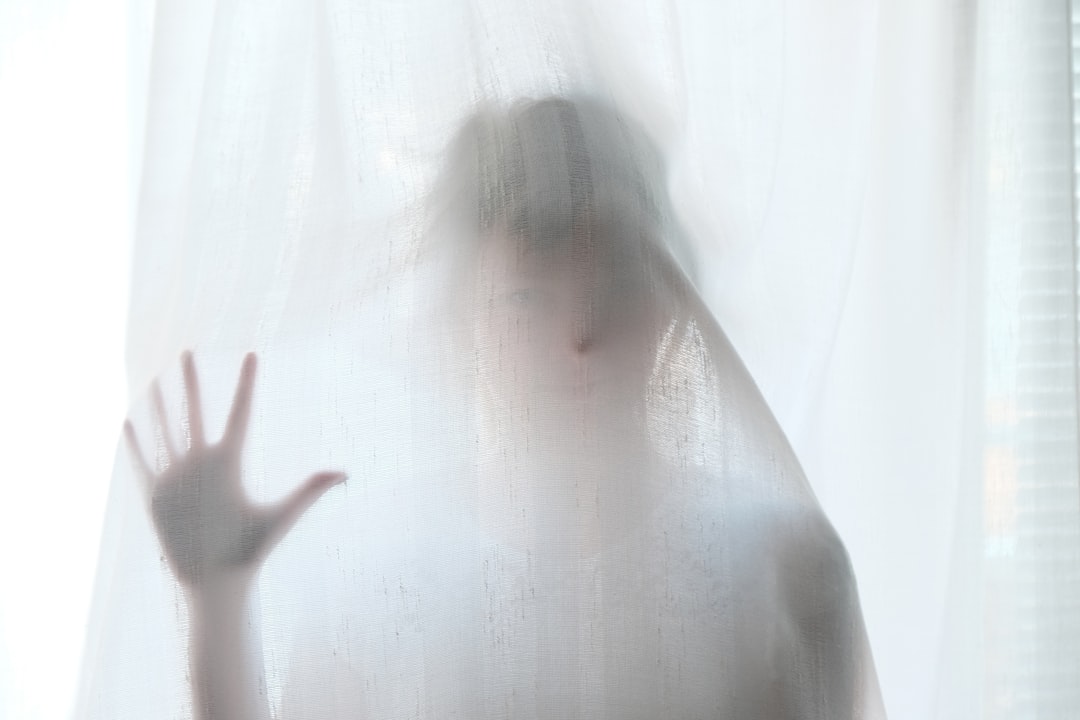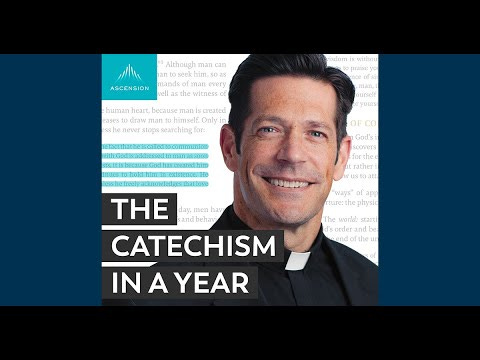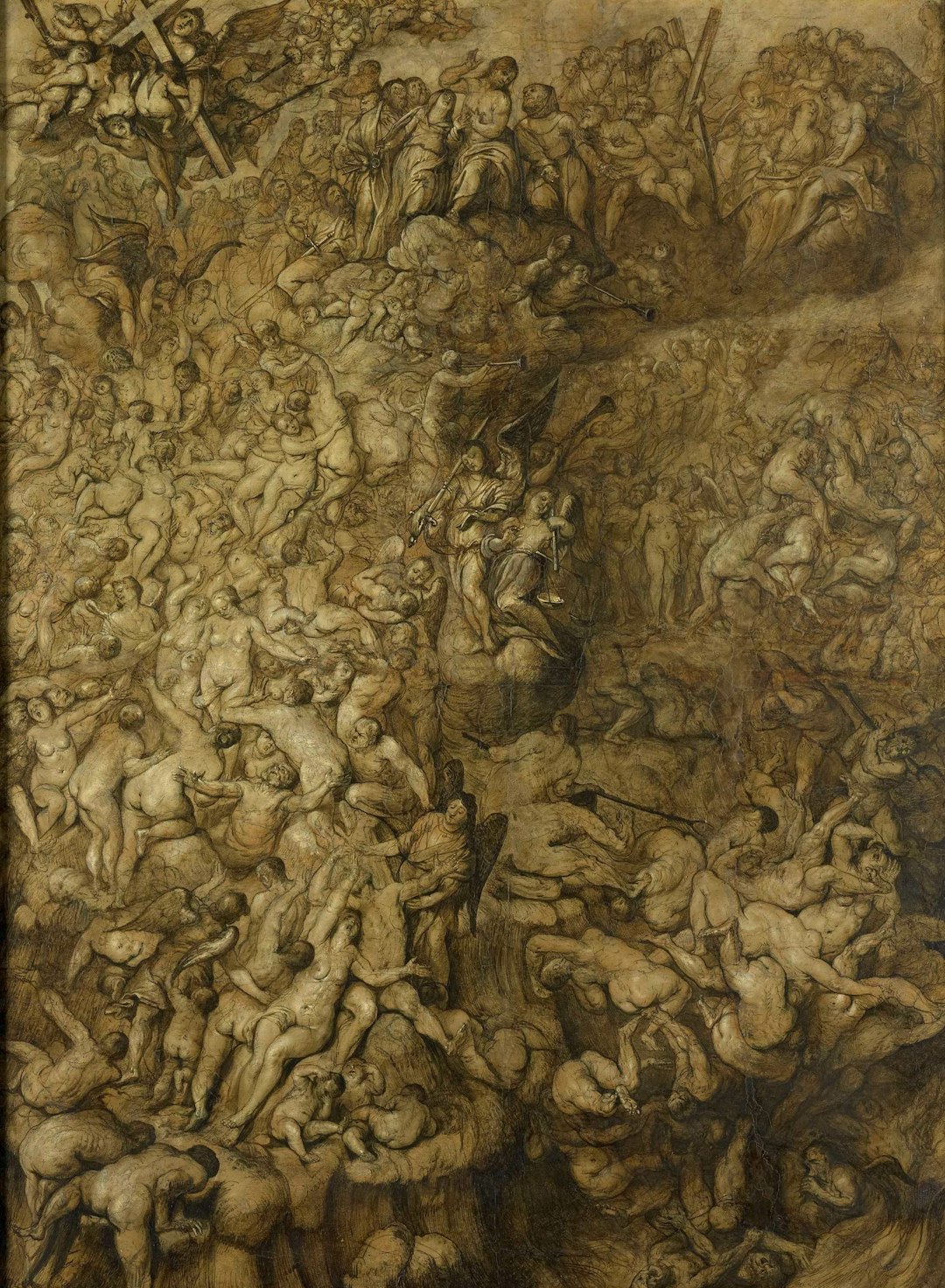Did You Know that Your Body and Soul are One?
And that on the last day, your once mortal body will come to life again?
I’ve been participating with Fr. Mike Schmitz’s “The Catechism in a Year” daily podcast. It is a wonderful source of learning given in a free podcast. While I could certainly read the Catechism of the Catholic Church on my own, by listening to the podcast I also get, free of charge, the good Father’s thorough expounding of each passage and accompanying prayers. This is of incredible value.
I’ve found it to be a great refresher in all that the Catholic Church teaches as well as, of course, a chance to hear things in new or different light for the first time. Part One of the Catechism is an illumination of each line of the Nicene Creed, of which we may many times recite unthinkingly on a given Sunday. As such, we often miss the significance of each of the beliefs we hold as Catholics.
One of those beliefs that seems to be greatly overlooked these days has to do with the nature of our very bodies, and I thought it would be interesting to explore that here. Remarkably, the Catechism quotes St. Augustine on this topic, "On no point does the Christian faith encounter more opposition than on the resurrection of the body."
We are not Ghosts in Machines
The Catechism asserts that we are not merely spirits inhabiting an expendable body. On the contrary, our body is part of a profound unity of body and soul that forms a single nature. (Catechism, 365). In other words, your physical body is just as important a component to your being as your soul because they are not two natures but one. It seems to be common mistake today to think that the physical body is not important to our makeup, or that somehow the soul, which actually forms the body, can be mistakenly placed in the wrong body.

This is good news! We are who we are both physically and spiritually—there’s no mistake. Those suffering from a form of body dysmorphia can know that this is only a psychological issue that can be resolved. They are not the ghost of a woman trapped in a man’s body—their body and soul are actually one. They are not, in fact, placed in an impossible situation of having a wrong and imputable body that cannot in reality be changed. Your soul is the same sex as your physical body, and you are as God made you inside and out. Again, good news.
Your body is not only your own, it’s part of a larger body
As believers, our body and soul participate in the dignity of belonging to Christ (Catechism, 1004). The Catechism quotes St. Paul: “The body [is meant] for the Lord, and the Lord for the body… You are not your own.” Our bodies together form the Body of Christ on Earth, with Christ as its head.
This should give all of us an incentive to take care of our bodies, as well as others, in that they are a vital part of who we are. They are not our property, but God’s. We need to show some proper respect!
But even there, as our bodies inevitably break down, there is hope.
The Resurrection of the Body
Christians believe in the resurrection of the body. We do not get multiple lives in different bodies in this world, rather, as the author of Hebrews states, “Just as it is appointed that human beings die once, and after this the judgment…” (Hebrews 9:27). When we die, as the Catechism explains, “there is a separation of the soul from the body, the human body decays and the soul goes to meet God, while awaiting its reunion with its glorified body.” We thus are disembodied souls until the end of the world, then all the dead, both the just and the unjust, will arise, "those who have done good, to the resurrection of life, and those who have done evil, to the resurrection of judgment." [Jn 5:29; cf. Dan 12:2] (Catechism, 1038). So, both the just and the damned will get their bodies back.
For the followers of Christ, as Christ’s resurrected, glorified body did not return to an earthly life, Christ "will change our lowly body to be like his glorious body," into a "spiritual body.” (Catechism, 999). Even the damned will have their bodies back, however, in a non-glorified condition, but nevertheless incorruptible state. “God, in his almighty power, will definitively grant incorruptible life to our bodies by reuniting them with our souls, through the power of Jesus' Resurrection.” (Catechism, 999).
We do not quite know how all this happens as it “exceeds our imagination and understanding; it is accessible only to faith.” (Catechism, 1000).
This is good news for all of us. For those of us who suffer from various bodily ailments, both mentally and physically, from birth defects to lost body parts, and age-related break-downs of the body, we have the hope that our bodies will be restored to us free of all such infirmities. And not just to some form of vigorous, youthful earthly condition. We, should we be counted among the just through God’s mercy and justice, will have glorious bodies with capabilities like those of Christ’s after his resurrection.
I think we can all see that our earthly bodies are not quite what they could be. Even the healthiest among us suffer from bodily pain and ailments at one time or other. Even gifted athletes know that someday their bodies will quit on them. Some of us suffer as quadriplegics, unable to move our limbs; others suffer from bodies that are broken with age. Others deal with mental difficulties, which of course stem from a physical problem with our brain.
As it is, we all have an imperfect alignment between our body and spirit. We know that “the spirit is willing; the flesh is weak.” With our cooperation with God’s grace and mercy, all that will be gone. Our perfected bodies will be one with Christ’s.
May He come again soon!





